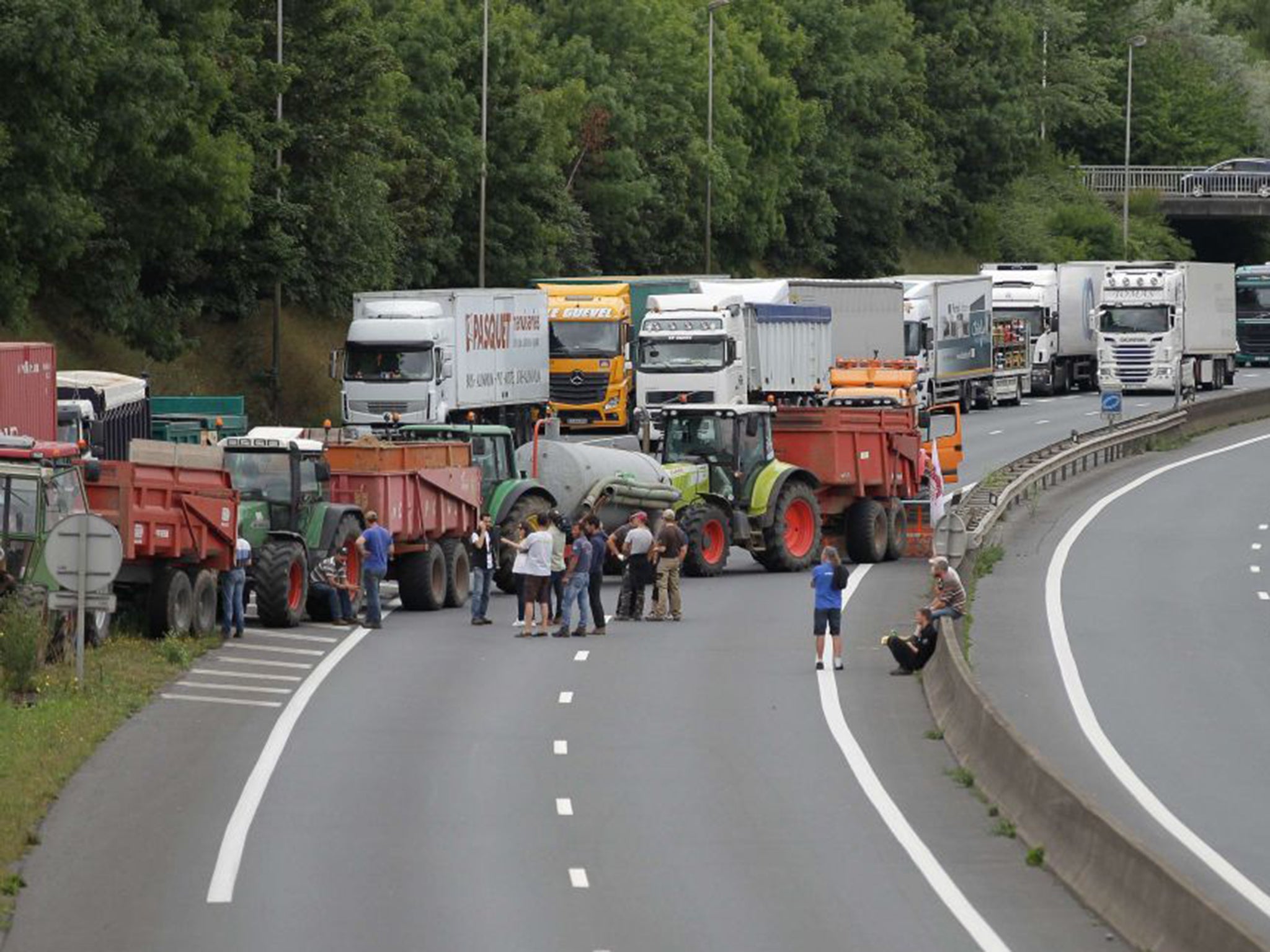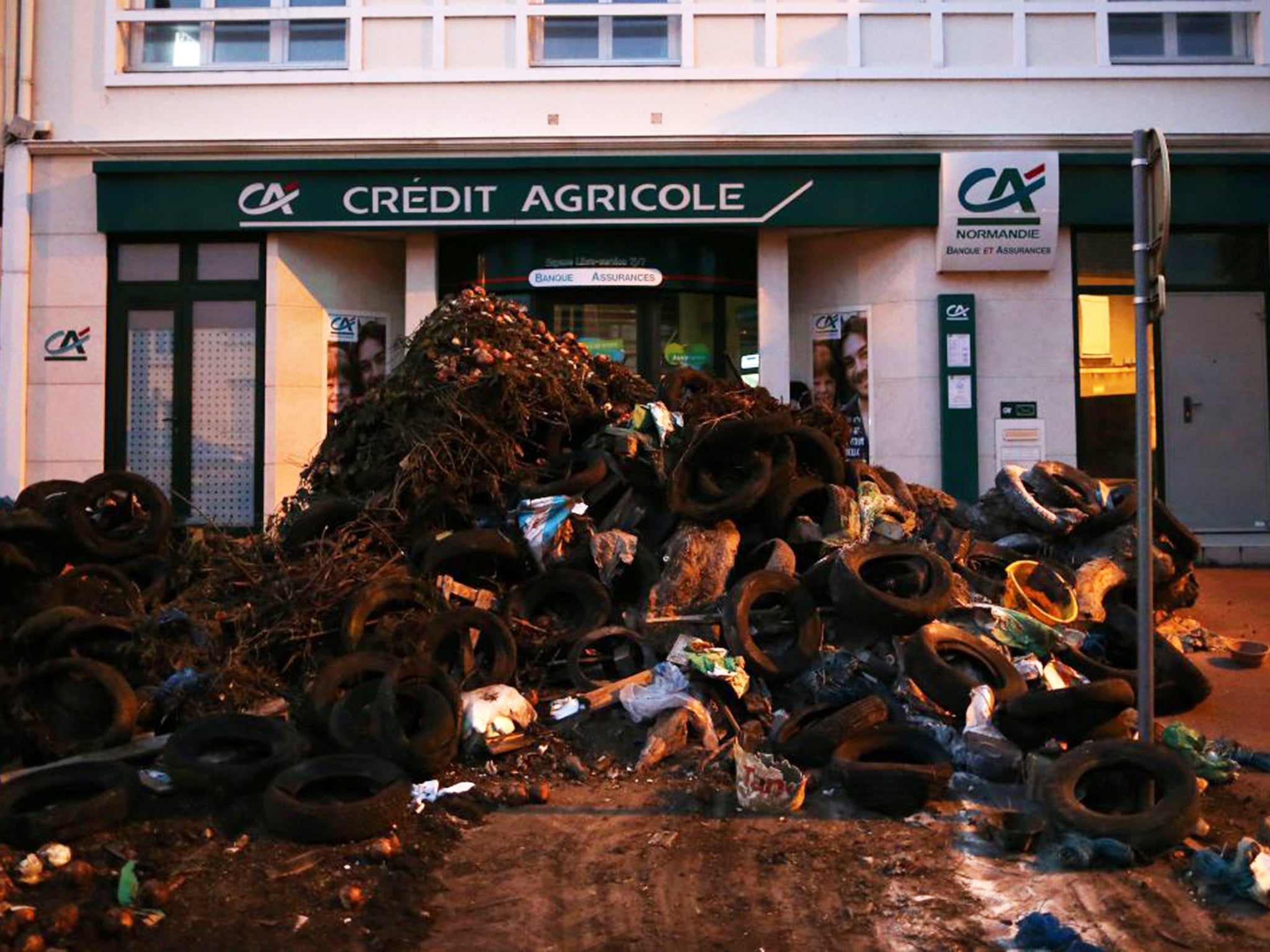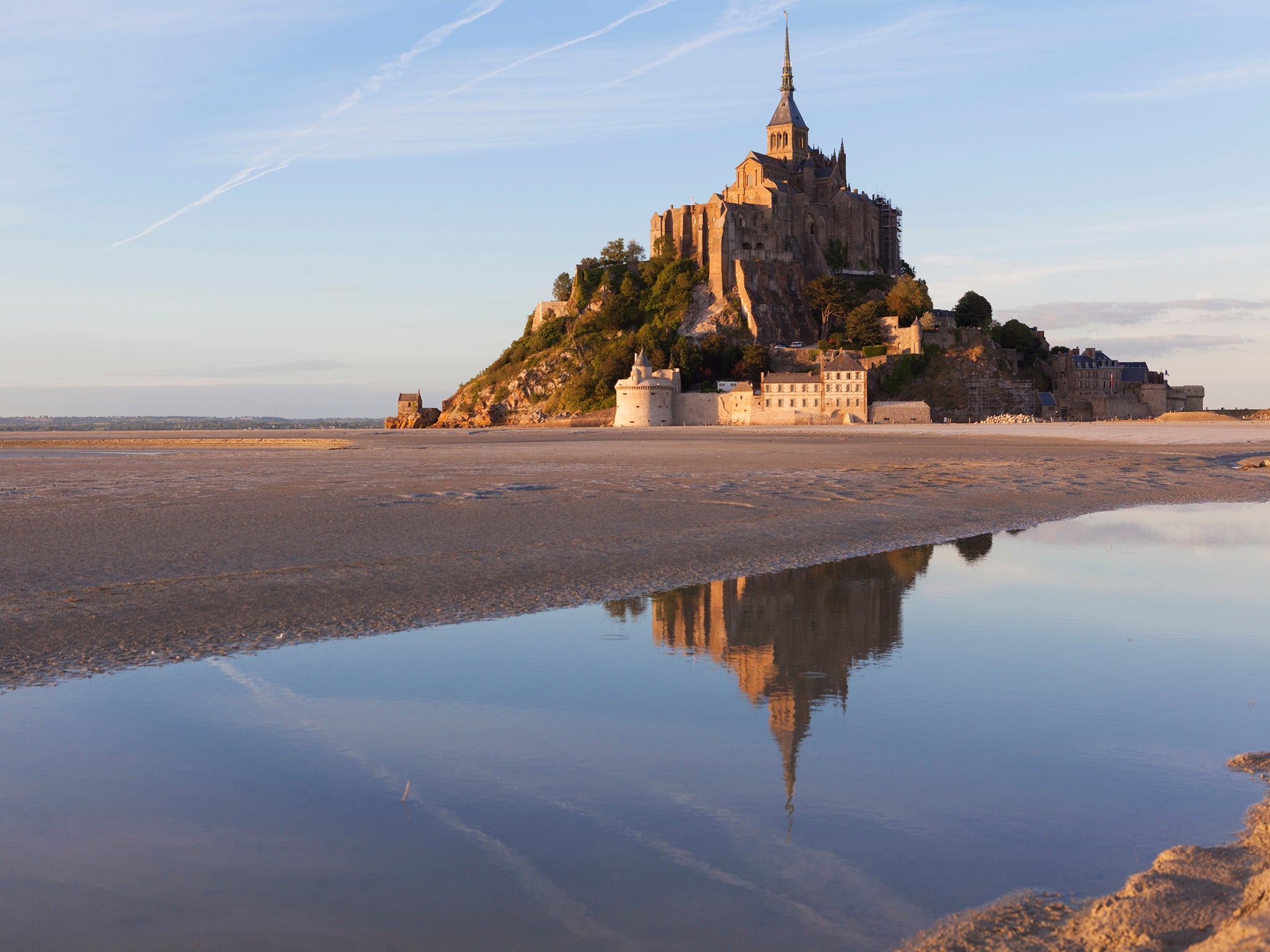Striking French farmers block all access to tourist attraction Mont St Michel over deal 'broken by supermarkets'
Dairy, beef and pork farmers blocked all roads into Caen in lower Normandy

Your support helps us to tell the story
From reproductive rights to climate change to Big Tech, The Independent is on the ground when the story is developing. Whether it's investigating the financials of Elon Musk's pro-Trump PAC or producing our latest documentary, 'The A Word', which shines a light on the American women fighting for reproductive rights, we know how important it is to parse out the facts from the messaging.
At such a critical moment in US history, we need reporters on the ground. Your donation allows us to keep sending journalists to speak to both sides of the story.
The Independent is trusted by Americans across the entire political spectrum. And unlike many other quality news outlets, we choose not to lock Americans out of our reporting and analysis with paywalls. We believe quality journalism should be available to everyone, paid for by those who can afford it.
Your support makes all the difference.Mont St Michel – the most popular tourist site in provincial France – was cut off from the world by angry French farmers on Monday.
Dairy, beef and pork farmers, protesting against low prices, blocked all roads into Caen in lower Normandy and piled manure and tyres on the only road access to the Mont St Michel, the medieval abbey-island on the Norman-Breton border. They also blocked the A84 motorway, one of the chief links between the Channel coast, Brittany and south western France.
The farmers have refused to end their protests until they receive a personal visit and assurances of emergency action from the Agriculture Minister, Stéphane Le Foll. They rejected an invitation from Mr Le Foll to send a delegation to meet him in Paris.

The protests reflect a triple crisis in French agriculture. Dairy, beef and pork farmers have suffered a collapse in farm gate prices in the last year – as have similar farmers in Britain. In each case, the fall in prices has a different explanation but farmers no longer have the cushion of European Union intervention, via subsidies, to prop up the market. The old system of prices guaranteed by Brussels and stocking of surpluses has been progressively dismantled over the last decade.
French farmers’ leaders accuse the country’s larger supermarket chains of breaching an accord brokered by the government a month ago to push up retail food prices by a few euro centimes a week. The supermarkets say they have respected the agreement but the extra money paid out by consumers has been pocketed by middle-men and food processors.
All sides agree that the animal sector of French agriculture – about 50 per cent of the whole industry – is facing its worst crisis for 30 years. Mr Le Foll said at the weekend that one in 10 of all French dairy, beef and pork holdings – about 25,000 farms – were on the point of bankruptcy.
He has appointed a mediator to try to rescue last month’s agreement between farmers and supermarkets and to propose other forms of emergency aid. Farmers’ leaders are calling, among other things, for exemptions from social security charges and restrictions on allegedly “unfair” competition from Germany and east European EU countries.
Xavier Poisson, 42, a dairy farmer near St Lô in lower Normandy, said: “I am allowing myself a strict minimum amount of cash to eat and I still had to see my banker and ask for a €30,000 [£21,000] loan over five years.” He added: “In 1789 we had a revolution against royalty. In 2015 there is going to be a peasants’ revolt against the kings of the supermarket industry.”
Experts say that beef prices in France have collapsed, partly because of cheap imports from eastern Europe and partly because French people are eating less beef. There is a worldwide glut in dairy products which has forced milk prices in many countries below the cost of production. French pork farmers are facing competition from larger farms in Germany.
France is still the biggest single beneficiary from the EU Common Agriculture Policy but the subsidies are now paid in the form of direct annual payments to farms, rather than intervention to prop up the market.

Over 40 per cent of the EU subsidies paid in France go to relatively wealthy cereals farmers, who have traditionally controlled the French farm unions.
Jean-Yves Heurtin, president of the Calvados federation of farm unions, said that the protests would continue until the distant minister “drags his boots over here” and promises to enforce last month’s price deal with supermarkets.
The Prime Minister, Manuel Valls, said the government’s door was open but it would not respond to threats. The road to the Mont St Michel, which attracts 2,500,000 visitors a year, was barricaded by 70 tractors and trailers on Monday night. There were long queues of cars and camper vans trying to reach the rocky island just off the Norman coast.
Join our commenting forum
Join thought-provoking conversations, follow other Independent readers and see their replies
Comments